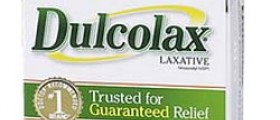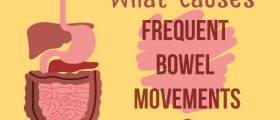
Constipation and nausea can be associated symptoms. Often, nausea is caused by constipation. Constipation is a condition featured by decreased frequency of stool and passing hard and dry stool. Nausea is always a symptom of some underlying condition. Nausea and constipation can be connected because sometimes with severe constipation person may experience nausea since food can only go upwards.
Symptoms of Constipation and NauseaConstipation includes several symptoms such as: hard and dry stool, passing less than three stools a week and excessive strain during bowel movements. Sense of rectal blockage, painful bowel movements and feeling of incomplete emptying after bowel movement are also caused by constipation. Constipation can cause abdominal swelling, bloating, and pain as well. Nausea, on the other hand, may be accompanied with retching and profuse sweating. Causes of Constipation and NauseaConstipation can be caused by the same factors as nausea, though nausea can be also caused by constipation itself. Constipation usually happens when the colon absorbs plenty of water or it may occur when the muscle contractions of the colon are slow or sluggish which causes slow propulsion of the stool through the intestines. These causes of constipation may be triggered by different factors. Excessive absorption of water and slow movement of the stool through the intestines can be due to dehydration, low fiber diet, abuse of laxatives, medications, irritable bowel syndrome or some other medical conditions. Constipation and nausea can be caused by pregnancy where these problems commonly arise because of hormonal changes. Other causes of constipation and nausea include: colon disorders, thyroid problems, trauma to the spinal cord, premenstrual syndrome, hypercalcemia and autonomic neuropathy.
Treatment for Constipation and NauseaConstipation and nausea are not serious conditions and can be cured with home remedies, diet alterations and lifestyle changes. Usually, nausea will diminish when constipation is relieved. To treat constipation, you must eat diet rich in fibers which means at least between 25 and 35 grams of fiber per day. Sources of fibers are fruits, vegetables, whole grains and beans. Regular exercise can also help with constipation because lack of physical activity often leads to this condition. Keep yourself hydrated and drink at least 8 glasses of water per day and increase intake of other liquids too because that will soften the stools. Do not delay passing stool because it can result in constipation thus you should not ignore the urge to have a bowel movement. There are different home remedies that can help to treat constipation naturally and they include mango juice, cabbage, figs dipped in water, guava and fennel seeds. Finally, think of laxatives as your last resort because you may become addicted to them.

















Your thoughts on this
Loading...